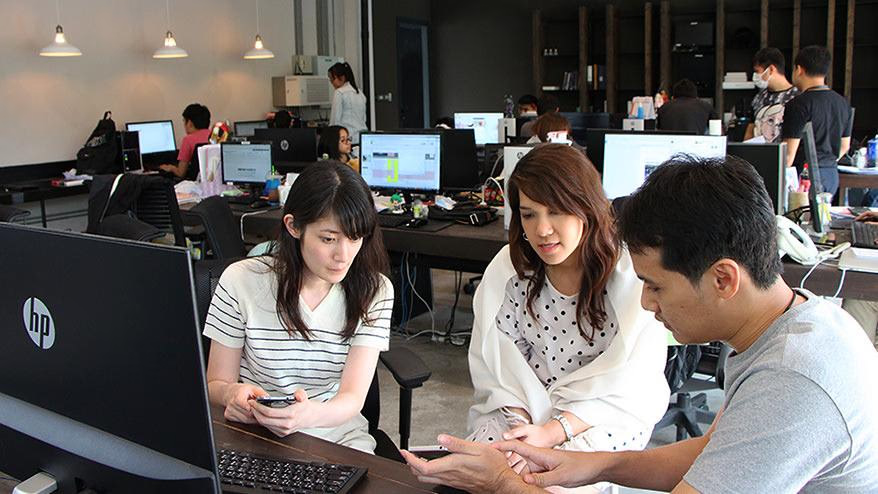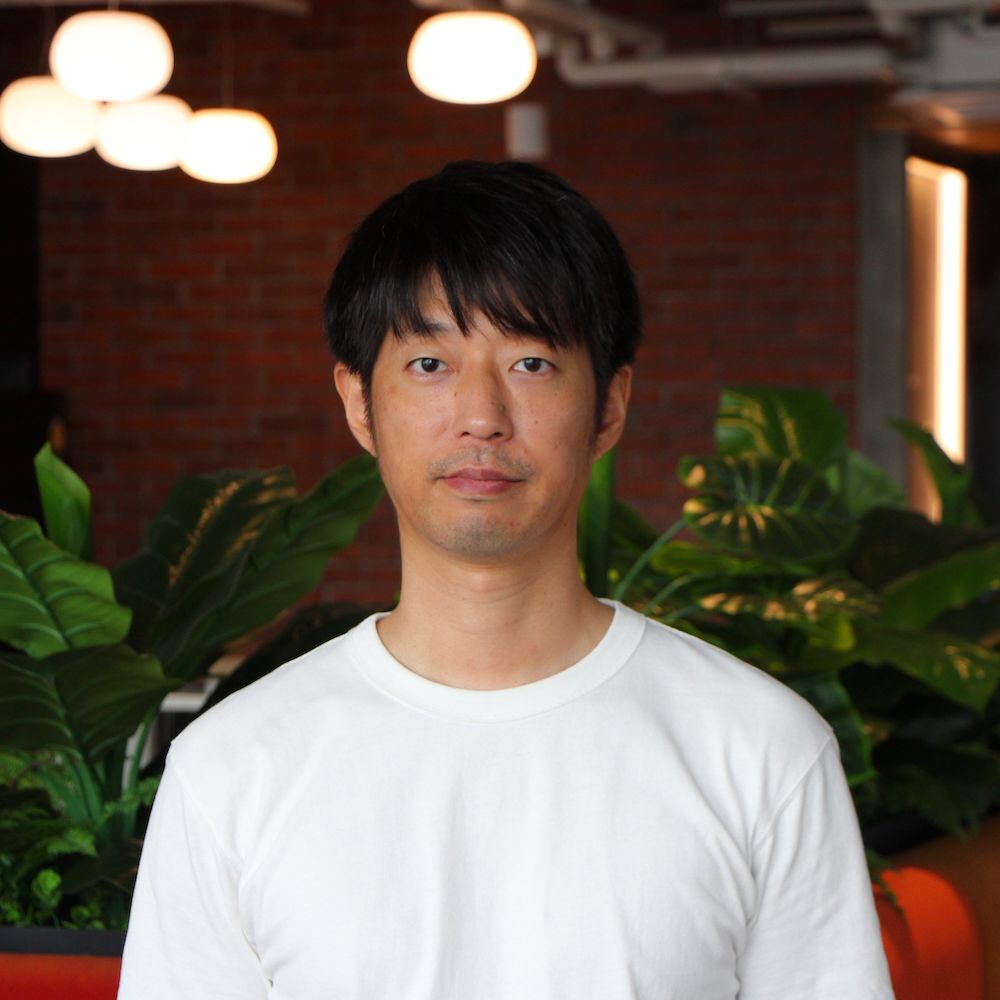Hello. I am Miyagawa from Monosus Thailand.
It has been about three years since Monotai started as an offshore production base for Monosus Japan. With a focus on Coding Factory services, Monotai has been responsible for a large amount of coding work in the creation of Monosus' websites. Thanks to this, the number of projects has already exceeded 500 sites.
This month, we will be introducing you to the little-known daily production system at Monotai.
Differences in production systems compared to Japan
First of all, the biggest difference between the production systems in Japan and Thailand is that in MonoThailand, direction is done by Japanese people and coding is done by Thai people.
Some clients feel uneasy about this at first, but after production is complete we hear many positive comments about the direction and the delivered product.
MonoTai's business hours are from 9:00 to 18:00 Thailand time. There is a two-hour time difference with Japan, so communication with customers starts at 11:00 Japan time in the morning.
Japan Monosas starts service at 10:00, so although the delay is effectively one hour, this can cause inconvenience to customers, but on the other hand, the two-hour time difference can also be seen as an advantage.
For example, even if the submission is delayed until 11:00 a.m. (Japan time) the next day, it will be exactly the start of work in Thailand, so we will be able to start work on schedule.
Issues and policies for overseas production
While we receive many positive comments from our customers, it is also true that some people have concerns about "producing overseas."
Certainly, there are issues that must be resolved when producing overseas.
When we heard about the challenges of offshore work across industries, we found that they could be summed up into the following two points:
- Communication barriers
- Insufficient quality control on a case-by-case basis
These two issues are intertwined. To solve these issues, our production system exists as a "systematic measure to maintain and improve quality" that does not rely on individual skills.
CF x Thailand's unique project production system
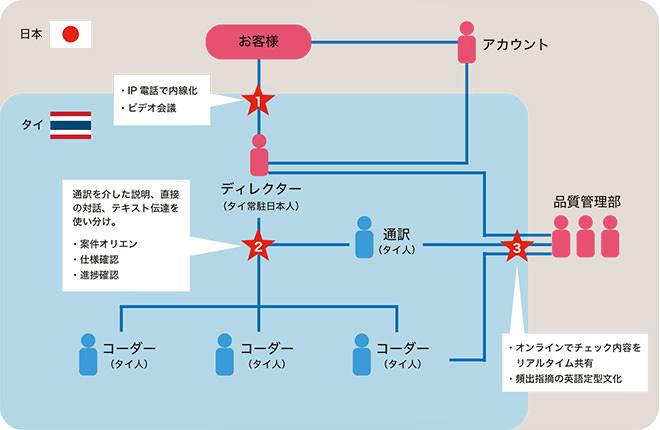
Monosus Thailand Project Production Structure
The production system is based on the Coding Factory workflow, but there are some communication points that are particularly important in Thailand.
1: Customer x Japanese director
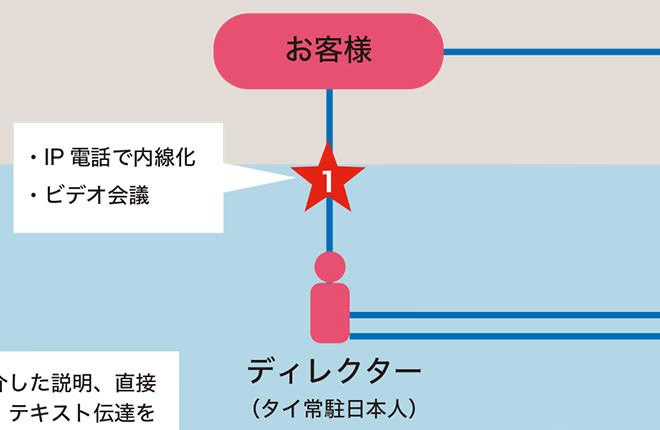
During production, it is extremely important that the client and the production team communicate smoothly. A Japanese director who is easy for the client to communicate with and shares the same sensibilities will act as a hub between the client and the Thai coders.
We have also established an infrastructure to facilitate easier communication, connecting our Tokyo and Thai offices with IP phones. If you call Tokyo, you will be connected to an internal line in Thailand, and the call charges will be the same as in Japan.
Even within the company, we can connect to Thailand as if we're on another floor, so the emotional distance between members has become much closer.
We also hold video conferences via Skype etc. as necessary, such as for face-to-face meetings when production begins.
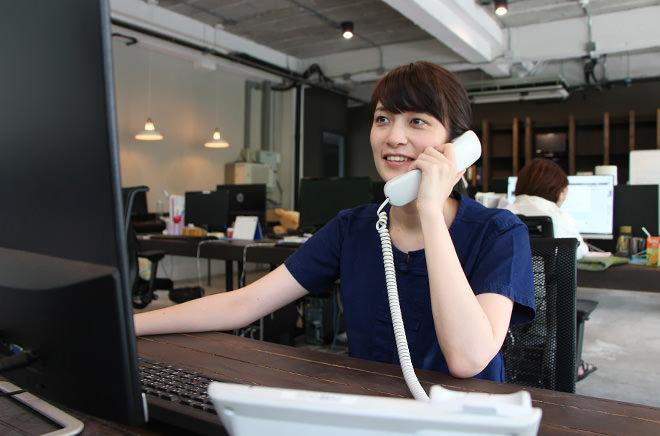
We are connected to the Tokyo office via an internal line, so even though we are an overseas base, we are able to communicate without feeling any distance.
2: Japanese Director x Thai Coder
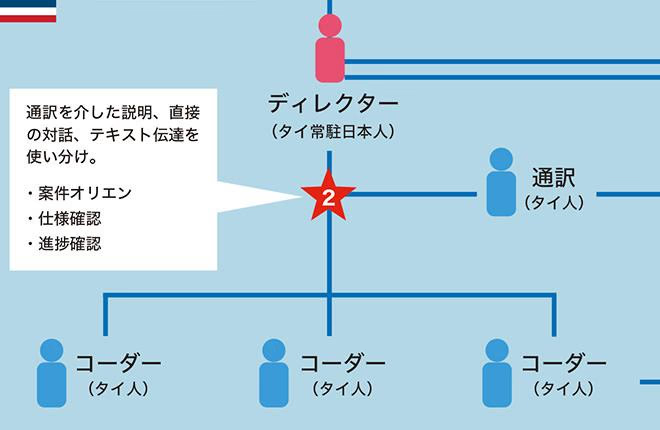
When explaining specifications to Thai coders or answering their questions, we use the most appropriate method depending on the situation, such as through interpreters or by speaking directly in English or Thai.
When accurate communication is required, we always leave a written record, and when explaining nuances, we also use diagrams and gestures. We aim to have thorough and careful dialogue until we understand each other properly.
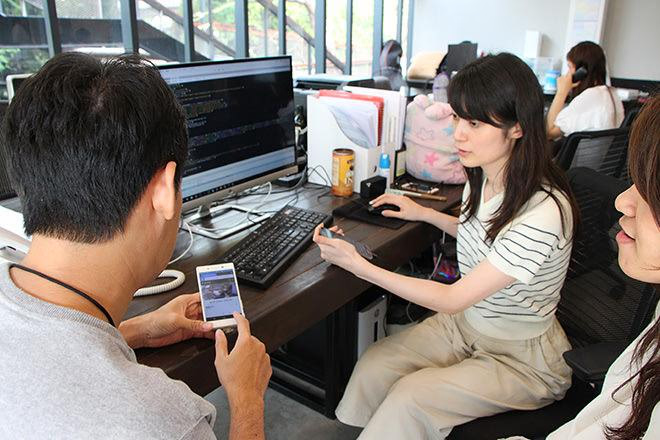
We will also address bugs on each verification machine by actually touching them and checking them.
3: Thai Production Team x Quality Control Department
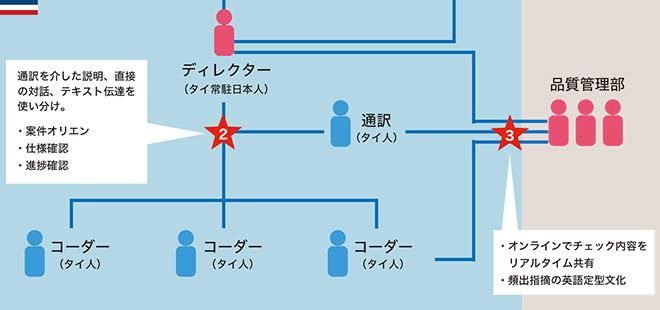
The quality control department plays a very important role in Coding Factory's services. This is no different for production in Thailand. Checkers in Tokyo thoroughly manage quality control regardless of the base.
The basic flow is that the Japanese director distributes the specifications to the quality control department, the interpreter translates the Japanese comments from the checkback, and then distributes them to the Thai coders, but we are also working on improving our operations by systematizing them on a daily basis.
For example, by creating a list of frequently used words in the checks and comments in standard English phrases, the interpreter can directly share the information with the coder without having to translate it. This has also significantly reduced the amount of work required to deal with individual variations and ambiguities in Japanese expressions.
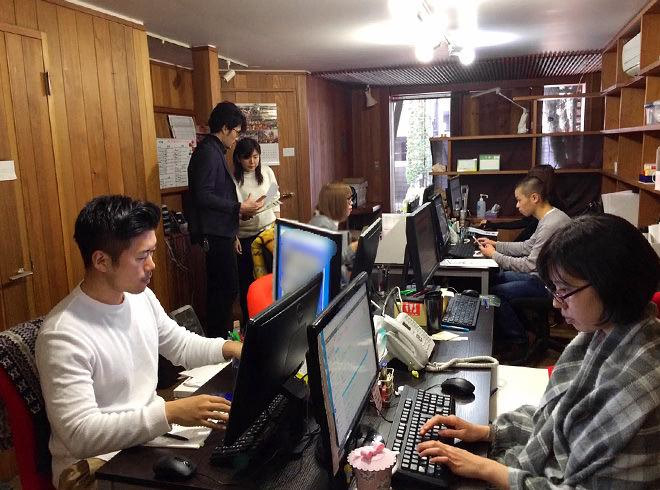
The quality control team in our Tokyo office thoroughly checks all Thai projects.
Leveraging individual strengths within a system
Monosus Thailand continues to evolve every day to find its own strengths, while also establishing systems for improving quality and skills, such as strict coding guidelines and holding study sessions and information sharing sessions.
While the production system is based on a system that does not rely on individual skills, we want each creator to be a professional creator with their own unique characteristics. With this in mind, we work closely with each person to help them develop their strengths.
We will continue to aim to build teams that make the most of the unique personalities that are unique to Thailand.
